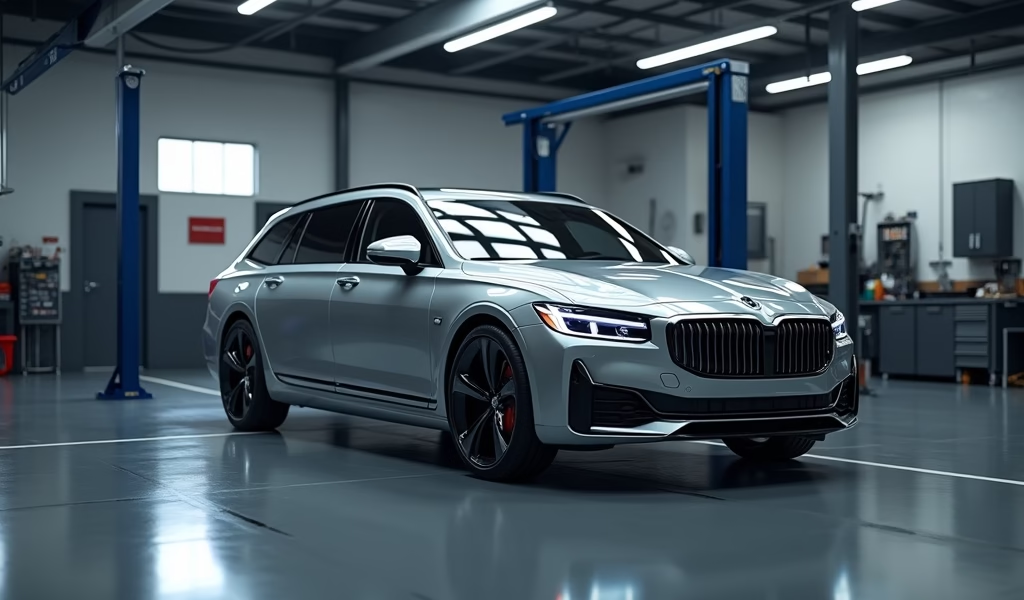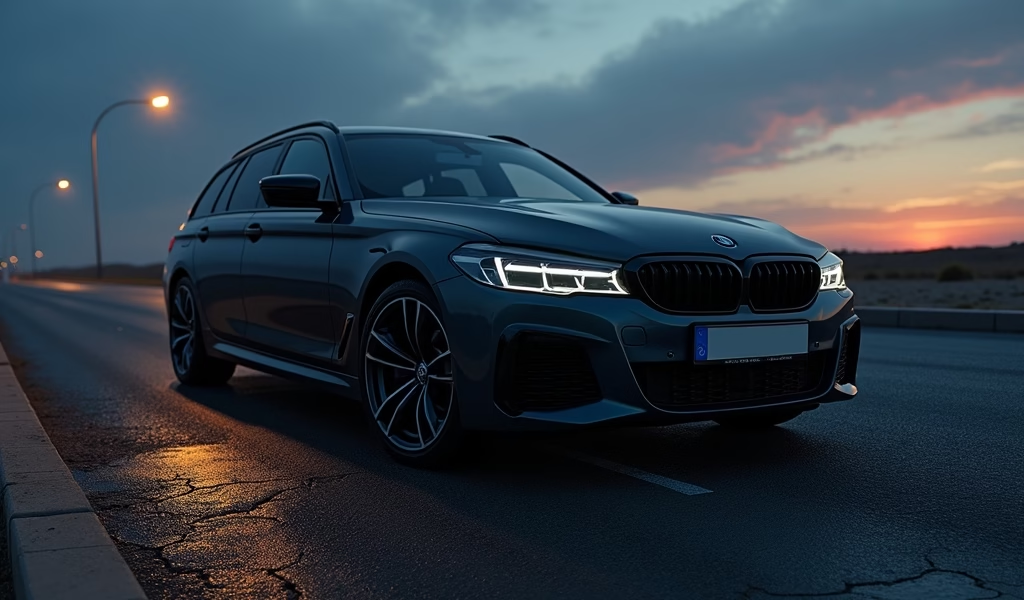Overview
This guide provides seven essential tips for purchasing estate cars, focusing on assessing space needs, comparing fuel efficiency, researching reliability, taking thorough test drives, comparing models, considering resale value, and exploring financing options. Estate cars offer an ideal balance between sedan comfort and SUV practicality, with modern options featuring advanced technology, impressive performance, and versatile designs that accommodate diverse lifestyles without sacrificing style.
Table of Contents
- Understanding Estate Cars: Practicality Meets Style
- Tip 1: Assess Your Space and Lifestyle Needs First
- Tip 2: Compare Fuel Efficiency and Running Costs
- Tip 3: Research Reliability and Maintenance History
- Tip 4: Take a Proper Test Drive (Not Just Around the Block)
- Tip 5: Compare Similar Models and Trim Levels
- Tip 6: Consider Future Resale Value
- Tip 7: Explore Various Financing Options
- Conclusion: Making Your Estate Car Purchase with Confidence
- Frequently Asked Questions
Understanding Estate Cars: Practicality Meets Style
Estate cars blend the comfort of a sedan with the practicality of an SUV, creating the perfect middle ground for families and adventurers alike. I’ve worked on these machines for over two decades, and I can tell you firsthand – a good estate car is worth its weight in gold when you need that perfect balance of space, driving comfort, and fuel efficiency.
The market for new estate cars for sale has evolved dramatically in recent years. They’re no longer just boxy, utilitarian vehicles that sacrifice style for space. Modern estates offer sleek designs with advanced technology, impressive performance, and the kind of versatility that makes daily life easier.
Whether you’re hauling the kids to school, loading up for a weekend camping trip, or just need extra space for your hardware store hauls, an estate car delivers without the bulk of larger SUVs. Let me walk you through what I’ve learned about picking the right one for your needs.
Tip 1: Assess Your Space and Lifestyle Needs First
Before you even step foot in a dealership, take an honest inventory of how you’ll use your estate car. This isn’t just about counting family members – it’s about understanding your daily life and special requirements.
Start by asking yourself these practical questions:
- How many passengers will you regularly transport?
- Do you need to accommodate child seats, and if so, how many?
- What’s the largest item you’ll need to transport regularly?
- Do you have hobbies requiring specific cargo space (bikes, fishing gear, musical instruments)?
- Will you be using roof racks for additional storage?
I once had a customer who bought an estate car based solely on looks, only to discover it couldn’t fit his golf clubs without folding down a seat. Don’t make the same mistake. Measure your must-have items and compare them to cargo dimensions before falling in love with any particular model.
Consider future needs too. If you’re planning on expanding your family or taking up space-hungry hobbies, factor that in now. The right estate car should serve you well for years to come, not just for your current situation.

Tip 2: Compare Fuel Efficiency and Running Costs
Estate cars typically weigh more than their sedan counterparts, which can affect fuel consumption. However, modern engineering has narrowed this gap considerably. When browsing new estate cars for sale, look beyond the sticker price to understand the true cost of ownership.
Diesel engines have traditionally been popular in estates due to their excellent torque for carrying heavy loads and superior fuel economy on long journeys. However, with improving petrol technology and the rise of hybrid estate options, your choices now are much broader.
Here’s what to consider when comparing running costs:
- Fuel type and real-world economy (not just the manufacturer’s figures)
- Insurance group ratings (estates can sometimes be higher than equivalent sedans)
- Road tax bands based on emissions
- Typical maintenance intervals and parts costs
- Warranty coverage and what it includes
According to The AA’s fuel price reports, the difference between running a petrol and diesel estate can amount to hundreds of pounds annually depending on your mileage. If you’re doing less than 12,000 miles a year, the premium price of diesel models might not make financial sense.
Remember that manufacturers’ fuel economy figures are achieved under ideal test conditions. For a more realistic picture, check owner forums or consumer review sites where real drivers share their experiences.
Tip 3: Research Reliability and Maintenance History
As a mechanic, I can tell you that not all estate cars are created equal when it comes to reliability. Some models might look identical on paper but have vastly different repair histories. Doing your homework here can save you thousands in unexpected repairs down the road.
Start by checking reliability surveys from trusted sources like What Car?, JD Power, or Consumer Reports. These organizations collect data from thousands of owners to identify common problems and rate overall reliability.
Pay special attention to issues specific to estate models, such as:
- Rear suspension durability (estates carry heavier loads)
- Tailgate mechanism reliability
- Rear wiper motor longevity
- Self-leveling suspension systems (if equipped)
- Electronic issues with powered tailgates
It’s worth checking if there have been any recalls or technical service bulletins (TSBs) for models you’re considering. These can indicate known issues that manufacturers have addressed. The DVSA’s recall checker is an excellent resource for this information.
Don’t just consider the initial purchase – think about maintenance costs too. German premium estates often offer excellent driving dynamics but typically cost more to maintain than Japanese alternatives. Parts availability and specialist labor rates can significantly impact your long-term satisfaction.
Tip 4: Take a Proper Test Drive (Not Just Around the Block)
A quick spin around the dealership won’t reveal an estate car’s true character. When testing new estate cars for sale, insist on a comprehensive test drive that mimics your everyday journeys. This is the only way to assess comfort, handling, and practicality in real-world conditions.
During your test drive, evaluate these estate-specific considerations:
- How does it handle when cornering? Estates have different weight distribution than sedans
- Is visibility compromised by the longer body style and rear pillars?
- How easy is it to park? Many estates are 4-6 inches longer than their sedan equivalents
- Is the ride comfortable for rear passengers? Some estates have firmer rear suspension
- How accessible are the cargo tie-downs and storage features?
If possible, bring along items you frequently transport to check loading ease. I’ve seen customers discover that their golf bag or baby stroller doesn’t fit as expected only after purchase – an expensive lesson!
Don’t forget to test the technology features too. Modern estates come loaded with safety and convenience tech that sounds great on paper but might be frustrating to use daily. Make sure infotainment systems, driver assistance features, and convenience items like powered tailgates work intuitively for you.
Tip 5: Compare Similar Models and Trim Levels
The estate car market offers remarkable variety – from budget-friendly options to premium vehicles with sports-car performance. Once you’ve narrowed down your requirements, compare similar models across different manufacturers to find the best value.
Don’t just compare base prices; look at what’s included as standard equipment. Some manufacturers include safety features as standard that others charge thousands for as options. When browsing new estate cars for sale, create a spreadsheet of must-have features to ensure you’re comparing apples to apples.
Trim levels can dramatically affect both price and resale value. Mid-range trims often represent the sweet spot for value, offering most desirable features without the premium price of top-spec models. However, if you’re planning to finance your purchase, remember that higher-spec models often depreciate faster but might be more desirable when it’s time to sell.
Consider these factors when comparing trim levels:
- Standard safety equipment (autonomous braking, lane keeping, etc.)
- Convenience features that matter to you (keyless entry, powered tailgate)
- Seat materials and comfort options
- Technology packages and connectivity
- Wheel sizes (larger wheels look nice but can negatively impact ride quality)
Don’t be swayed by fancy features you’ll rarely use. That panoramic sunroof might look impressive on the test drive, but ask yourself if it’s worth the additional cost and potential maintenance headaches down the road.

Tip 6: Consider Future Resale Value
Estate cars typically hold their value differently than other body styles, and this varies significantly between manufacturers. Understanding depreciation patterns can save you thousands when it’s time to sell or trade in.
Generally, German premium estates (Audi, BMW, Mercedes-Benz) tend to hold their value well, especially with diesel engines. Japanese manufacturers like Toyota and Mazda also perform strongly in the depreciation stakes with their estate offerings.
Factors that positively impact estate car resale values include:
- Diesel engines (in many markets, though this is changing with emissions regulations)
- Mid to high trim levels with popular options
- Neutral exterior colors (silver, black, dark blue)
- Full manufacturer service history
- Lower mileage than average
According to CAP HPI, estates often depreciate slower than their sedan counterparts in the premium segment. This is worth considering if you’re torn between body styles – the initially more expensive estate might actually cost less over your ownership period when total depreciation is calculated.
If you’re financing, remember that stronger residual values typically translate to more favorable lease rates or PCP (Personal Contract Purchase) deals. This might allow you to get more car for your monthly budget with attractive financing options.
Tip 7: Explore Various Financing Options
Even if you’ve found the perfect estate car, how you pay for it can make or break the deal. Today’s car financing landscape offers multiple paths, each with distinct advantages depending on your circumstances.
The main options for financing new estate cars include:
- Personal Contract Purchase (PCP) – Lower monthly payments with a final balloon payment
- Hire Purchase (HP) – Higher monthly payments but you own the car outright at the end
- Personal Contract Hire (PCH) – Essentially long-term rental with maintenance options
- Traditional bank loans – Often competitive rates with the advantage of owning the vehicle immediately
- Cash purchase – Eliminates interest costs but requires significant capital
PCP has become increasingly popular for estate cars due to the lower monthly payments. However, be aware of mileage limitations and condition charges if you plan to return the vehicle rather than keeping it at the end of the term.
Manufacturer incentives can significantly reduce costs, particularly at quarter-end or year-end when dealers are pushing to meet targets. Look out for deposit contributions, subsidized interest rates, or free servicing packages that can add significant value.
Always calculate the total cost of ownership over your planned holding period, not just the monthly payment. A deal that seems attractive on paper might cost more in the long run when all charges and final payments are considered.
Conclusion: Making Your Estate Car Purchase with Confidence
Buying a new estate car doesn’t have to be overwhelming. By following these seven proven tips, you’re now equipped to make a choice that balances your practical needs, driving preferences, and budget constraints.
Remember that the perfect estate car is the one that fits your specific lifestyle. Take your time with the decision – this is a significant investment that you’ll live with daily. Consider both immediate needs and how your requirements might evolve over the next few years.
The estate car market continues to evolve with increasingly efficient engines, advanced safety features, and innovative storage solutions. These practical vehicles offer a compelling alternative to SUVs, often delivering better fuel economy and handling without sacrificing much in terms of practicality.
At KnowsYourCar.com, we’re here to support you throughout your ownership journey. Whether you need maintenance advice, troubleshooting help, or guidance on your next purchase, our team of experienced mechanics and automotive experts is just a click away. Visit us at knowsyourcar.com for more automotive insights and ownership tips.
Happy motoring in your new estate car!
Frequently Asked Questions
Are estate cars more expensive to insure than sedans?
Estate cars sometimes fall into slightly higher insurance groups than their sedan counterparts due to increased repair costs and higher vehicle values. However, the difference is typically modest and varies by manufacturer and model.
Do estate cars have worse fuel economy than comparable sedans?
Modern estate cars usually have only marginally worse fuel economy than their sedan equivalents, typically 1-2 mpg difference. Aerodynamic designs and weight-saving technologies have significantly narrowed this gap in recent years.
Which manufacturers make the most reliable estate cars?
According to reliability surveys, Toyota, Skoda, and Mazda consistently produce dependable estate cars with lower-than-average repair costs. German premium manufacturers often score well for build quality but may have higher repair costs when issues do occur.
Are estate cars going out of fashion with the rise of SUVs?
While SUVs have gained popularity, estate cars maintain a dedicated following due to their superior handling, better fuel economy, and practical cargo space. Many manufacturers are actually expanding their estate offerings with crossover-inspired variants.
What’s the typical price premium for an estate over the equivalent sedan?
Estate cars typically command a £1,000-£2,000 premium over equivalent sedans from the same manufacturer. This premium is often offset by stronger residual values and higher demand on the used market.

